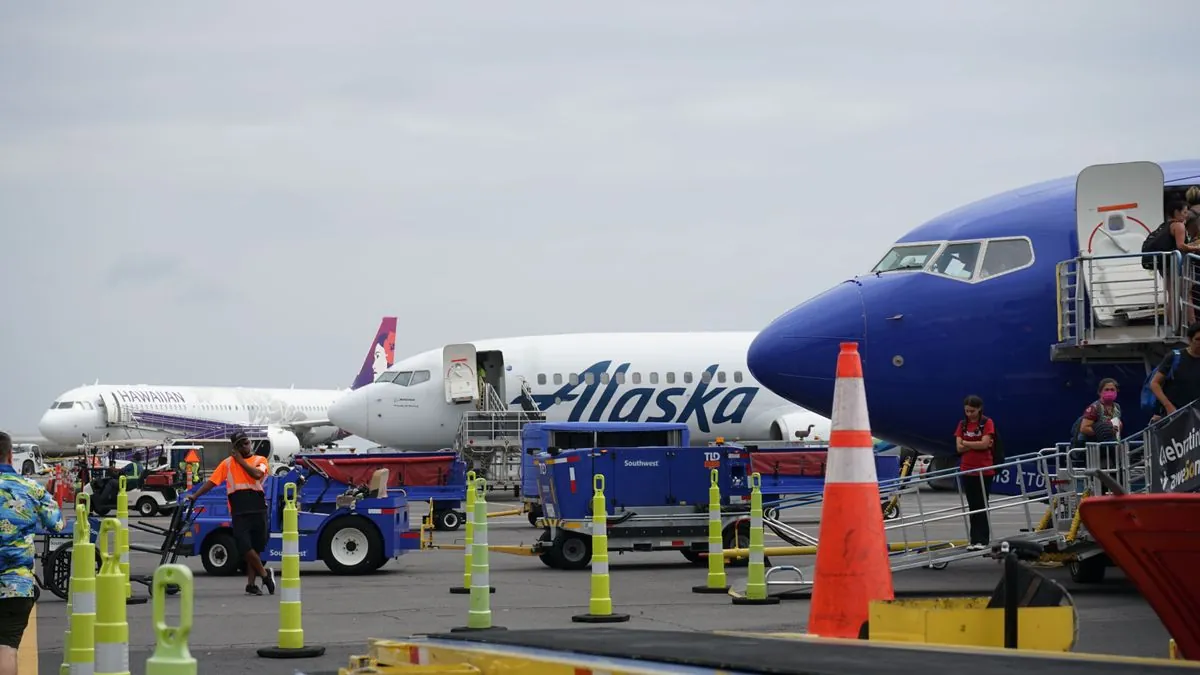The proposed merger between Alaska Airlines and Hawaiian Airlines has taken a significant step forward, clearing a crucial regulatory hurdle. This development marks a pivotal moment in the U.S. airline industry, potentially creating the fifth-largest carrier by passenger traffic.
According to Alaska Airlines, the Justice Department's review period for the nearly $2 billion deal has expired without the filing of a lawsuit to block the merger. This outcome has surprised some industry observers, given the Biden administration's typically stringent approach to mergers in concentrated sectors.
"The time period for the U.S. Department of Justice ... to complete its regulatory investigation of the proposed combination of Alaska Airlines and Hawaiian Airlines ... has expired."
The merger, first announced in December 2023, aims to significantly expand mainland U.S. travel options from Hawaii and bolster Alaska Airlines' international presence. However, the deal still requires approval from the Department of Transportation before it can be finalized.
Ben Minicucci, Alaska Airlines' CEO, emphasized that the merger would unite two companies with shared values of connecting communities and people. Meanwhile, Peter Ingram, Hawaiian Airlines' CEO, highlighted the unique dependence of Alaska and Hawaii on air service for connectivity.
To address potential concerns, Alaska Airlines has made several commitments. The company has pledged to maintain the Hawaiian Airlines brand and protect local jobs. Additionally, Alaska Airlines plans to establish a significant regional headquarters in Hawaii, similar to its existing operations in Alaska and California.
Josh Green, Hawaii's Governor, expressed support for the merger, stating that it would expand access to mainland destinations for Hawaii residents. He noted that his administration had worked closely with airline leadership to evaluate the merger's potential impacts and ensure the preservation of local union jobs.
This merger comes at a time when four major carriers – American, Delta, Southwest, and United – dominate 80% of the U.S. airline market. The combination of Alaska and Hawaiian Airlines is seen as a strategic move to compete more effectively in this concentrated industry.
If approved, this would be the first major U.S. airline merger since Alaska Airlines acquired Virgin America in 2016. The proposed merger would create a combined network serving 138 destinations, with a workforce of approximately 25,000 employees.
It's worth noting that both airlines have rich histories in the aviation industry. Alaska Airlines, founded in 1932 as McGee Airways, was a pioneer in online ticket sales, becoming the first airline to sell tickets online in 1995. Hawaiian Airlines, established in 1929 as Inter-Island Airways, holds the distinction of being the oldest U.S. carrier without a fatal accident or hull loss.
As the merger process continues, industry experts and consumers alike will be watching closely to see how this consolidation impacts the competitive landscape of the U.S. airline industry and, more importantly, the travel options and services available to passengers.
